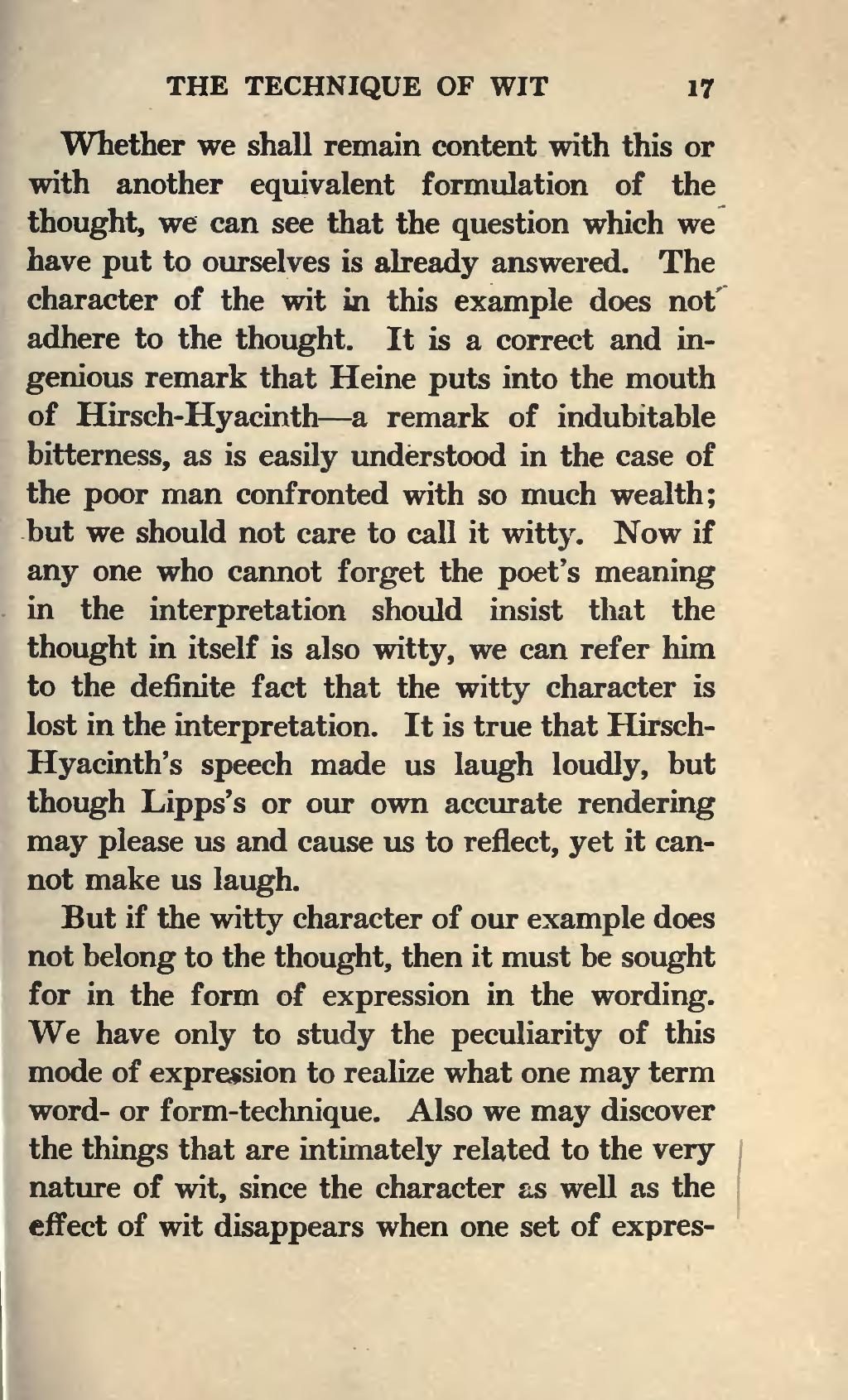Whether we shall remain content with this or with another equivalent formulation of the thought, we can see that the question which we have put to ourselves is already answered. The character of the wit in this example does not adhere to the thought. It is a correct and ingenious remark that Heine puts into the mouth of Hirsch-Hyacinth—a remark of indubitable bitterness, as is easily understood in the case of the poor man confronted with so much wealth; but we should not care to call it witty. Now if any one who cannot forget the poet’s meaning in the interpretation should insist that the thought in itself is also witty, we can refer him to the definite fact that the witty character is lost in the interpretation. It is true that Hirsch-Hyacinth’s speech made us laugh loudly, but though Lipps’s or our own accurate rendering may please us and cause us to reflect, yet it cannot make us laugh.
But if the witty character of our example does not belong to the thought, then it must be sought for in the form of expression in the wording. We have only to study the peculiarity of this mode of expression to realize what one may term word- or form-technique. Also we may discover the things that are intimately related to the very nature of wit, since the character as well as the effect of wit disappears when one set of expres-
